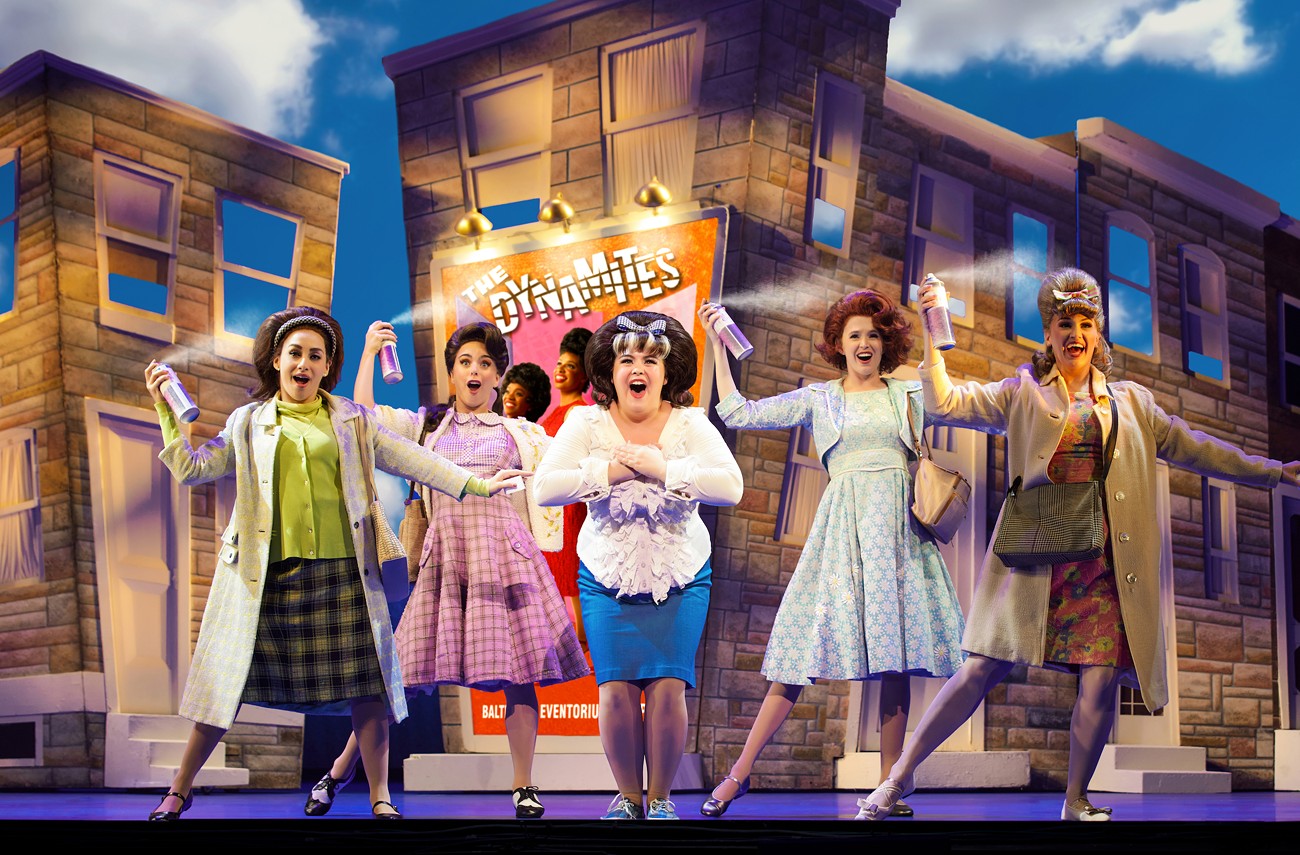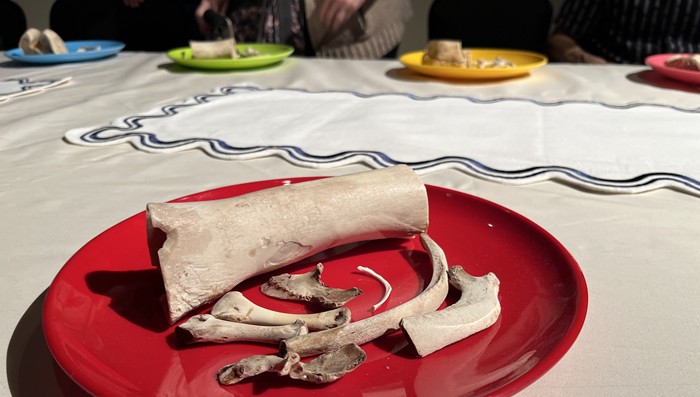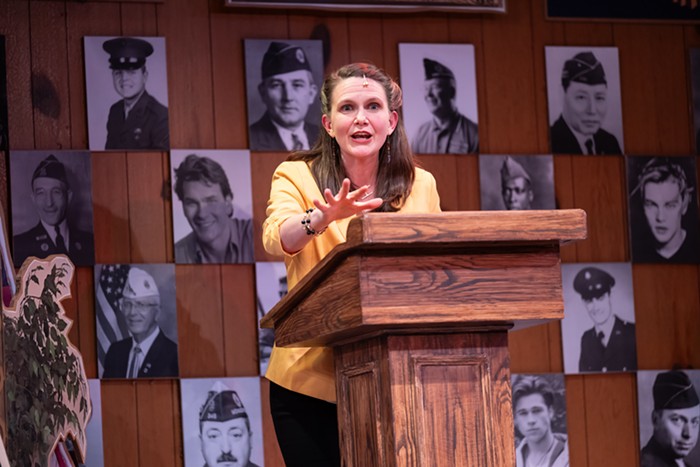Hairspray could have worked in a quiet theater. The songs are that catchy—doo-wop after soul pop with nary a slow ballad. But what really made our particular viewing of the award-winning, nationally-touring musical memorable was the reaction it drew from its audience.
When Tracy Turnblad (Niki Metcalf) swooped in to kiss her crush Link Larkin (Nick Cortazzo), people to our right shouted: "Ooo!" When Larkin later betrayed her, a shocked gasp from someone in the back traveled all the way across the room. Though Andrew Levitt AKA Nina West overcame it with true thespian-level projecting, the audience could not refrain from screaming every time his character, Edna Turnblad, graced the stage.
Unfortunately, in what was likely an opening night tech glitch, Levitt was one of the few performers we could consistently understand. Cumulatively, Hairspray's music was louder than its performers' lines for around a quarter of show. That was a shame because the musical adaption of John Waters' 1988 film is deeply funny, with unpredictable, laugh-out-loud moments. Much to our frustration, too many of those punchlines were trampled by the exuberant score.
It's not necessary to see Waters' film Hairspray—which he wrote and directed—to understand the overarching story of a plucky girl named Tracy Turnblad pushing for racial integration in '60s Baltimore. But knowing that her mother, Edna, was originally performed by Waters' muse Harris Milstead AKA the legendary drag queen Divine, might help explain why the role remains so prominent and beloved today.
Edna traces her own arc alongside her daughter—disheartened to supportive to fabulous—and ends up similarly shining in the spotlight. When Marc Shaiman, Mark O'Donnell, and Thomas Meehan adapted the film into a musical, the role remained one intended for a drag performer, playing up the actor's falsetto to bass vocal range for comedy and power.

Indeed, one of Hairspray's strengths, as a production, is the way it accommodates multiple star roles, subtly inviting the audience to wonder who could be the show's lead if the situation were slightly different.
The flouncy twists of local teen troupe the Nicest Kids in Town are perfectly captivating, but the dances choreographed for their sidelined Black teen counterparts are far more impressive, showcasing the longstanding truth of racial discrimination in casting.
While Tracy is initially rejected from Nicest Kids auditions, she eventually wows the show's host with a series of dance moves cribbed from her Black detention-mate Seaweed J. Stubbs (Charlie Bryant III). Another auditionee, Little Inez (Joi D. McCoy), never manages to Cinderella her way into the spotlight, but Hairspray gives the audience a few peeks into what she can deliver—as if positing: What if this play were told from her perspective? What if we got more Inez?
Adapted in 2002, written in the '80s, and set in the '60s, Hairspray remains a product of its time, but because John Waters was ahead of his time, many of the show's themes will still resonate with audiences today.
The production laid a strong groundwork of sparkling dance numbers and resonant themes, then circled back and built on them until the finale songs "I Know Where I've Been" and "You Can't Stop the Beat" carried the energy of everything that came before, and pushed it into the audience. At the close of a nearly three-hour event, the audience left loud and bubbly—the earlier sound problems appropriately overridden by the musical's undeniable and irreverent fun.
Hairspray plays at Keller Auditorium, 222 SW Clay, through Sun April 2, $34.75 - $109.75, tickets here, recommended for ages 8 and up.




















